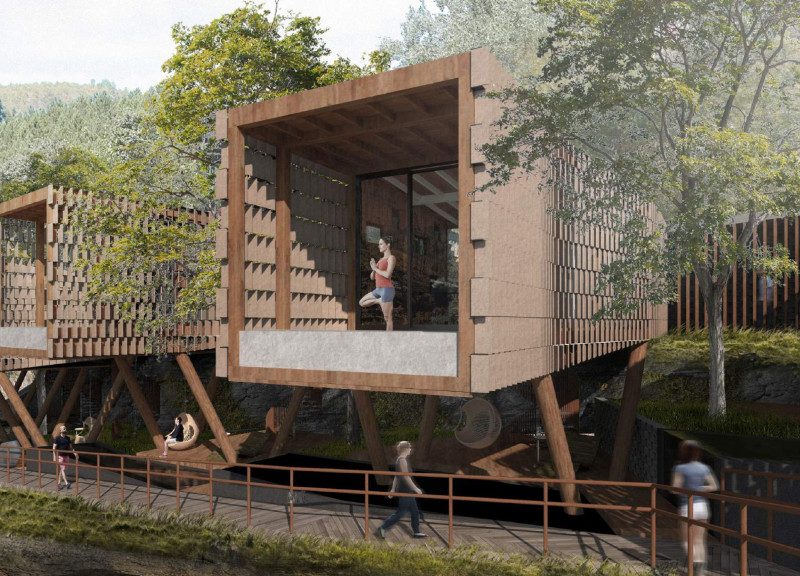5 key facts about this project
The Vale de Moses project, known as Tulā, focuses on the idea of balance, taken from its Sanskrit meaning. It finds its place in a quiet landscape in Portugal, allowing for meditation and reflection. The design connects with nature, emphasizing harmony between people and the environment while providing a space for wellness and personal growth.
Design Approach
The project directly responds to the sloping land, with meditation cabins positioned along the edge of a cliff. This setup allows the buildings to follow the natural contours of the site, descending gracefully from the farming area to stone terraces below. The elevated cabins create shaded outdoor areas underneath, encouraging visitors to engage with the surrounding natural world and enhancing their experience of peace.
Cultural Context
Traditional local culture is evident in the architectural details of Tulā. Cabins feature modular square wooden panels on their facades, inspired by the decorative tiles often seen in Portuguese buildings. This design choice connects the project to its cultural roots while offering a modern interpretation. The overall aesthetic is straightforward, focusing on simplicity and fitting well within the natural landscape.
Spatial Organization
Accessibility plays a significant role in the design. A long declining staircase connects the main building to the cabins, allowing guests to move easily while enjoying views of the valley. The arrangement of the cabins is carefully planned to ensure privacy without blocking sightlines to the landscape, creating a sense of openness while maintaining personal space.
Interior Experience
Inside the cabins, simplicity and practicality dominate the design, making them suitable for yoga, meditation, and wellness treatments. The interiors feature minimal furnishings to provide flexibility for various activities. Natural light pours in through thoughtfully placed windows and skylights, enhancing the feeling of spaciousness. Large sliding glass doors lead to small outdoor decks, connecting the indoor spaces with the natural beauty outside, perfect for moments of reflection.






















































